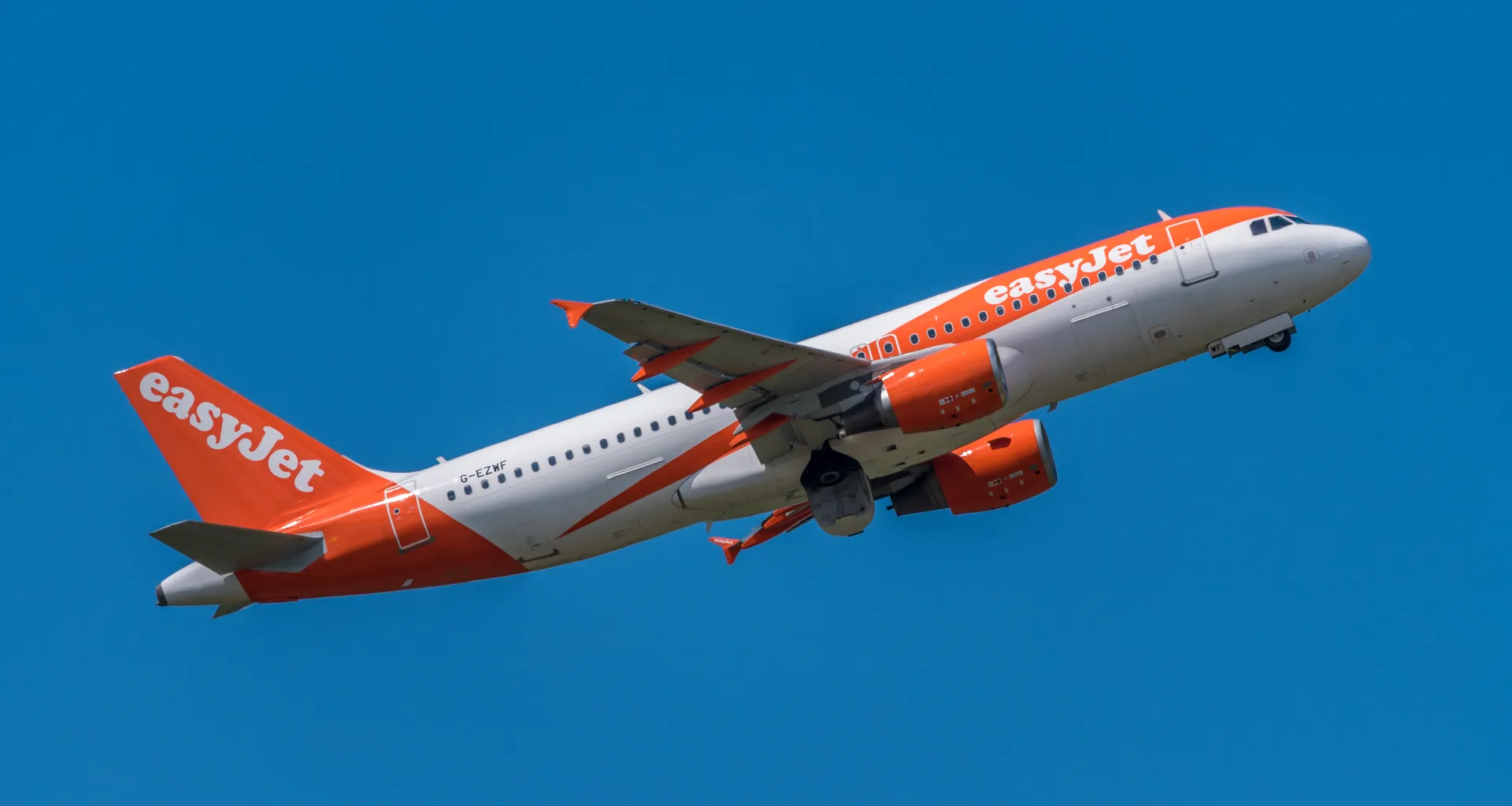easyJet shareholders: who owns the most EZJ stock in 2025?
Ownership can provide insights into a company’s direction and stability. For easyJet (EZJ), the mix of institutional investors, insiders and public shareholders provides insight into its position within Europe’s aviation market.
The following analysis examines who holds the largest stakes and how this structure reflects easyJet’s standing today.
easyJet continues to operate in a challenging environment in 2025, marked by ongoing labour shortages, air traffic disruptions and rising airport costs across Europe. Despite these pressures, the airline remains one of the continent’s largest low-cost carriers, and institutional investors continue to hold a major share of its stock.
Below, we look at who owns the most of easyJet shares, how ownership has evolved, and what it suggests about the company’s current standing in the market.
What is easyJet (EZJ)?
Founded in 1994 by Sir Stelios Haji-Ioannou, easyJet (EZJ) is a British low-cost airline headquartered at London Luton Airport. It operates an extensive network across Europe and North Africa, offering short-haul, point-to-point flights at competitive prices.
By late 2025, the airline runs one of the region’s largest fleets, with more than 320 aircraft serving hundreds of routes across major European hubs. easyJet is listed on the London Stock Exchange (LSE) under the ticker EZJ and is part of the FTSE 250 index.
Past performance is not a reliable indicator of future results.
Who owns the most easyJet shares?
easyJet’s shareholder base remains diverse, combining a strong institutional presence with significant insider ownership. As of November 2025, the ownership structure is as follows:
| Ownership type | Percentage | Shares |
|---|---|---|
| Individual insiders | 15.5% | 116,280,476 |
| General public | 6.12% | 45,969,959 |
| Employee share scheme | 2.92% | 21,887,629 |
| Private companies | 0.83% | 6,259,875 |
| State or government | 0.21% | 1,584,369 |
| Public companies | 0.13% | 937,191 |
Overall, the top 25 shareholders collectively hold around 68% of the company’s shares
Source: Simply Wall St, 19 November 2025).
Institutional shareholders
Institutional investors remain the dominant group, accounting for about 74% of the company’s shares in late 2025. These investors include global asset managers, pension funds and index-tracking firms.
Key institutional holders include:
| # | Institutional shareholder | Approx. shares held (millions) | Shareholding (%) |
|---|---|---|---|
| 1 | Hargreaves Lansdown Asset Management Ltd | 39.8 | 5.9% |
| 2 | UBS Asset Management AG | 38.7 | 5.16% |
| 3 | BlackRock, Inc. | 30.1 | 4.01% |
| 4 | Aberdeen Group Plc | 29.7 | 3.95% |
| 5 | Invesco Ltd. | 23.7 | 3.16% |
| 6 | The Vanguard Group, Inc. | 20.4 | 2.72% |
| 7 | Wellington Management Group LLP | 20.3 | 2.7% |
Institutional control of the share register indicates continued confidence in easyJet’s position within Europe’s low-cost travel sector, even as the company adapts to changing market conditions.
Individual shareholders
The Haji-Ioannou family remains the largest individual shareholder group, collectively holding about 15% of easyJet’s shares as of November 2025. Their ownership is primarily held through easyGroup Holdings Limited (controlled by Stelios and Clelia Haji-Ioannou) and Polys Holdings Limited (owned by Polys Haji-Ioannou).
- Stelios Haji-Ioannou – 9.52% (71.5 million shares, valued at roughly £325.8m)
- Polys Haji-Ioannou – 5.9% (44.3 million shares, valued at about £201.8m)
Combined, the three siblings — Stelios, Clelia and Polys — hold about 15%, down slightly from 15.3% in 2022, reflecting minor portfolio adjustments rather than significant divestment.
The family continues to exert long-term influence on the airline’s strategy, although there have been occasional disagreements with management over capital allocation and expansion decisions.
Final thoughts
easyJet’s share ownership in 2025 reflects a mix of institutional strength and sustained insider commitment. Major global asset managers dominate the register, while the founding Haji-Ioannou family continues to hold a significant strategic stake.
Create an account Open a demo account
FAQ
How many easyJet shares are there?
As of November 2025, easyJet (EZJ) has around 758 million shares in circulation, all listed on the London Stock Exchange (LSE). These represent the company’s total issued equity, traded as part of the FTSE 250 index. The figure reflects easyJet’s overall market value and ownership base, spanning institutional investors, insiders and the general public.
How many shareholders does easyJet have?
easyJet’s ownership is spread across institutions, insiders and retail investors. Institutional holders control around 74% of the company, with large asset managers and pension funds accounting for most of this share. The Haji-Ioannou family and other insiders hold about 15.5%, while the rest is owned by smaller private firms, employees and individual investors. Overall, the top 25 shareholders own roughly two-thirds of all shares, showing that ownership remains concentrated among long-term investors.
Who owns easyJet?
easyJet’s largest shareholders include major institutional investors and the founding Haji-Ioannou family. The family owns about 15% through easyGroup Holdings and Polys Holdings, with Sir Stelios Haji-Ioannou remaining the biggest individual shareholder. On the institutional side, Hargreaves Lansdown, UBS, BlackRock, Aberdeen and Invesco are among the top holders. This mix highlights easyJet’s balance between family ownership and professional investment management.
Can you trade easyJet shares as CFDs on Capital.com?
Yes. easyJet shares can be traded as contracts for difference (CFDs) on Capital.com, allowing you to speculate on EZJ’s price movements without owning the shares directly. You can go long if you think the price may rise, or short if you expect it to fall. CFDs offer flexibility and leverage, but they’re high-risk, complex instruments. It’s essential to understand how CFDs work and consider whether you can afford the risk before trading.